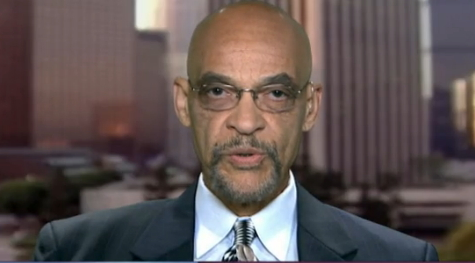Earl Ofari Hutchinson
The slaying of Markeis McGlockton, an African-American, by Michael Drejka, a white man, after an altercation in a Florida convenience store parking lot raised two questions about the Stand Your Ground laws. First, though McGlockton was unarmed, Drejka was not arrested and charged. This automatically raised the cry that another white guy horribly bent the Stand Your Ground law to murder a Black man and get away with it.
The sheriff protested that he doesn’t make the law but enforces it and it’s up to the county prosecutor to determine whether Drejka should be prosecuted. This didn’t change the fact that a guy killed under the flimsiest pretense that he feared for his life and seemingly got away with it, A lot of people were rightly incensed by it. This raises the even more intriguing question. What if there had been a racial role reversal in the killing and McGlockton had shot dead Drejka? Would the sheriff have so quickly and blithely hotly defended his inaction or would there have been any inaction?
McGlockton is hardly the first African-American to be slain by a white man under the Stand Your Ground law in Florida and other states. Studies have shown that in dozens of cases in which the stand your ground defense was invoked by whites, Blacks made up the majority of those shot or killed. In almost all cases where Blacks also resorted to gun play and claimed self-defense under the stand your ground laws, their victims were other Blacks. There are few documented cases of a Black shooter getting away with a stand your ground defense against whites. The one case that did attract some attention in Florida in 2012 in which a Black did kill a white man and claim immunity under the Stand Your Ground law didn’t fly. He was convicted of manslaughter.
The gaping racially skewed use of stand your ground laws as a cover and license to murder Blacks, but never the other way around; namely Blacks killing whites and getting away with it under the law has seldom been examined. One because there are almost no cases where that has happened. The other is the refusal to arrest and prosecute whites who kill Blacks under the most dubious circumstances and aren’t prosecuted. The Florida law virtually invites the loosest and most cavalier use of Stand Your Ground to get away with murder. The McGlockton slaying is a textbook example of that. He does not have a weapon. He did not initiate the confrontation with Drejka. His hard push of Drejka during the confrontation was done to protect his girlfriend who Drejka was verbally haranguing in the parking lot. Most importantly, he walked away from him. There was no evidence of any continued aggression or, in the parlance of the Stand Your Ground law, “imminent threat” to Drejka.
This meant nothing. Why? Because Drejka could claim that he believed that he might be endangered. In other words, not the real danger but what he perceived to be the danger. This was purely a subjective call by the shooter. McGlokton did not pose a direct threat to him and therefore there was no logical or for that matter legal reason to think that an unarmed man walking away from an altercation could possibly place someone in “imminent danger.”
There’s the real danger to Blacks. Countless studies have shown that many whites regard Black males as a mortal threat to their safety. When the stereotypes of violent, crime prone young Black males kick in this is a combustible element that fuels the perceived or imagined terror that a McGlockton, who is a young Black male, holds for individual such as Drejka. The racial warp in who gets prosecuted and who walks in a stand your ground killing is even more glaring when the shooter and the victim are both white, or are both Blacks. Studies have shown that the odds of a prosecution leap when the shooter and victim are white and plunge when the shooter and victim are Black.
Florida’s Stand Your Ground law uses wording that says a person can use an amount of force that “the person reasonably believes” is necessary if they are in imminent danger of death or serious bodily harm. And here’s the kicker: It also says that they’ve “exhausted” all other reasonable means to avoid injury or death.
What the average person would have done or thinks should have been done to stop an attack is vague, amorphous, and wildly subject to subjective interpretation in any confrontational situation. Here’s where the sheriff in the McGlockton slaying despite his protest that he couldn’t make the call to arrest, spun a lie. Under Florida law, he did have the authority to make an arrest at the scene. If he had arrested Drejka he would have been hauled before a judge who would decide whether Stand Your Ground applied to the case. Even if it applied a prosecutor could still prosecute. None of that happened in the McGlokton killing. The only chance that it would have is if it had been the other way around.
Earl Ofari Hutchinson is an author and political analyst. He is the author of the forthcoming Why Black Lives Do Matter (Middle Passage Press). He is a weekly co-host of the Al Sharpton Show on Radio One. He is the host of the weekly Hutchinson Report on KPFK 90.7 FM Los Angeles and the Pacifica Network.

